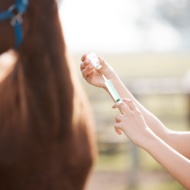Keepers search for escaped macaque in Scotland
The Japanese macaque, also known as a snow monkey, was one of a troop of 37 at Highland Wildlife Park.
Keepers from the Royal Zoological Society of Scotland (RZSS) are searching for a Japanese macaque, following its escape from Highland Wildlife Park.
The wildlife park discovered the monkey had escaped from its enclosure on 28 January, after a local reported a sighting in the village of Kincraig.
RZSS’ keepers were soon dispatched to the village, where they have been patrolling the area for sightings of the macaque. They have also called on a thermal image drone contractor to aid in the search.
The macaque is not considered to be dangerous to humans and pets. Keepers have asked locals to bring food sources such as bird feeders and food waste bins inside, to encourage the monkey to return to the wildlife park for food.
The Japanese macaque, also known as a snow monkey, was one of a troop of 37 at Highland Wildlife Park.
It is believed to have fled the park in reaction to a fight breaking out in the macaque enclosure. Macaques are currently in their breeding season, which can cause tensions to run high as they fight over breeding rights.
The keepers suspect that the adrenaline will have pushed this macaque to flee and pass the enclosure’s perimeter fence.
Speaking today, Highland Wildlife Park living collections operations manager Keith Gilchrist said: “Throughout the day our expert team of animal keepers will be patrolling the local area using a variety of techniques to try and coax him in, as well as using our thermal image drone contractor to aid with the search. Cairngorms Mountain Rescue has also kindly offered to support with their thermal imaging drone.
“As with yesterday, we’re asking locals to please bring any obvious potential food sources like bird feeders or food waste inside, as we’re hopeful that the monkey will return to the park if he can’t find food elsewhere.”
RZSS has asked that the public do not approach the macaque, but contact them on 07933 928377 or comms@rzss.org.uk with any information.
Image © Shutterstock



 Zoetis UK has apologised for a supply shortage of Equip Artervac, caused by a manufacturing issue.
Zoetis UK has apologised for a supply shortage of Equip Artervac, caused by a manufacturing issue.